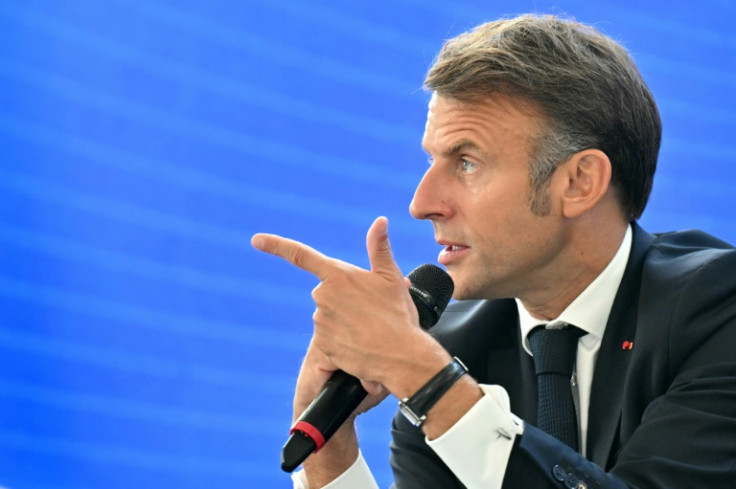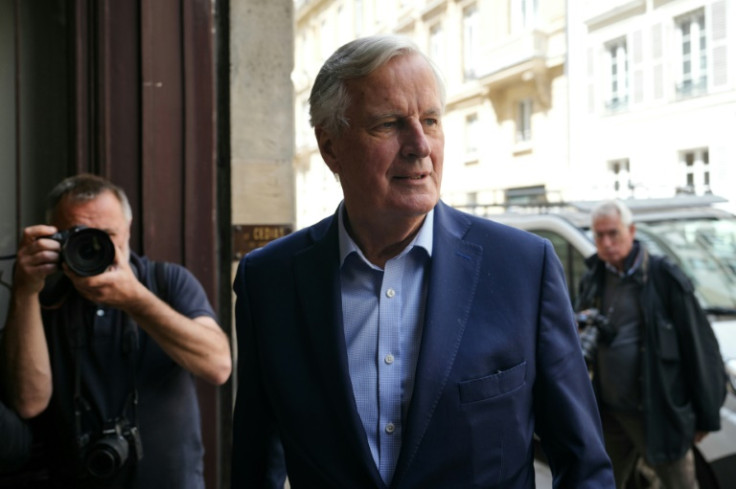
France was still waiting Wednesday to learn the identity of its new prime minister almost two months after legislative elections left the country in political deadlock, with President Emmanuel Macron battling to find a name that would be acceptable to parliament.
Sources close to the president had indicated an announcement was possible as soon as Wednesday evening but later made clear no news was expected until Thursday at the earliest.
Conservative former minister Xavier Bertrand had been seen as the favourite but his chances appeared to recede throughout the day.
Macron had also been sounding out opinion on a return to office for former Socialist prime minister Bernard Cazeneuve. An entirely new name also entered the fray on Wednesday, the right-wing mayor of the southern city of Cannes, David Lisnard.
Adding to the uncertainty, a flurry of late speculation also surrounded the possibility that Michel Barnier, a right-winger and the EU's former negotiator on Brexit, could be summoned to make a return to frontline politics as premier.
Barnier has been all but invisible in French political life since failing to win his party's nomination to challenge Macron for the presidency in 2022.
Whoever is named risks facing a no-confidence motion that could garner support from both the left bloc and the far-right National Rally (RN), both implacably opposed to Macron and his policy record.
Bertrand served as minister under conservative presidents Jacques Chirac and Nicolas Sarkozy and has more recently run the northern Hauts-de-France region, where he vaunts his two electoral victories holding back the RN's advance.
But the mathematics of parliamentary seats appeared increasingly stacked against him.
A ministerial advisor, who asked not to be named, told AFP there was a "blockage" on his nomination.
"Bertrand is most likely 100 percent dead" in terms of his chances of becoming premier, another advisor added, referring to an "anti-Bertrand front" among even centrist pro-Macron deputies "because he would never have had a majority on any text".
Macron's decision comes under the gun of a deadline to submit a draft 2025 budget for France's strained government finances before October 1.
It also marks his attempt to acknowledge rejection of his seven-year rule without giving up on hard-fought reforms, chief among them last year's widely resented increase to the official retirement age to 64 from 62.
After a snap election deprived Macron of his relative majority in parliament on July 7, the centrist president has drawn out the appointment of a new prime minister for a period unprecedented since World War II, through the July-August Olympic Games and beyond.
Macron called the election earlier this summer after the far right trounced his party in the European Parliament elections in June.
A left-wing coalition emerged as France's biggest political force but with nowhere near enough seats for an overall majority, while Macron's centrist faction and the far right make up the two other major groups in the National Assembly.
Throughout the chaos, Prime Minister Gabriel Attal, who made history this year as France's youngest and first openly gay head of government, has stayed in office as a caretaker, even if he knows his days are numbered.
Speaking to Le Figaro daily and using rugby parlance, he expressed hope his successor could "convert the try" of the policies whose implementation he could not complete.








